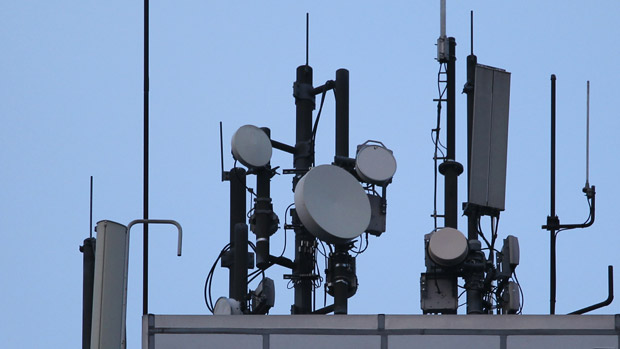Mysterious 'fake' phone towers discovered in the US
Investigation finds 17 rogue towers around the country, some of which appear to be built on US military bases

A free daily email with the biggest news stories of the day – and the best features from TheWeek.com
You are now subscribed
Your newsletter sign-up was successful
Rogue phone towers that have been found across the US could be listening in on ordinary people's private phone conversations, an investigation has found.
A report by Popular Science magazine discovered fake phone masts that are capable of eavesdropping on people's calls and installing spyware on their phones.
Around the country, 17 different false towers – also known as "interceptors" were located, many of which appear to be built on US military bases.
The Week
Escape your echo chamber. Get the facts behind the news, plus analysis from multiple perspectives.

Sign up for The Week's Free Newsletters
From our morning news briefing to a weekly Good News Newsletter, get the best of The Week delivered directly to your inbox.
From our morning news briefing to a weekly Good News Newsletter, get the best of The Week delivered directly to your inbox.
The towers were discovered by people using a customised Android device called the CryptoPhone 500. This phone uses bespoke software to inform its user if their device is being subjected to what is known as a "baseband attack," Sky News says. It is then possible to trace where the attack originated.
Les Goldsmith, chief executive of security firm ESD America, told Popular Science: "Interceptor use in the US is much higher than people had anticipated. One of our customers took a road trip from Florida to North Carolina and he found eight different interceptors on that trip. We even found one at a casino in Las Vegas."
He added: "What we find suspicious is that a lot of these interceptors are right on top of US military bases. So we begin to wonder – are some of them US government interceptors? … Is it just the US military, or are they foreign governments doing it? The point is: we don't really know whose they are."
Android and Apple phones are incapable of detecting the phony towers, Popular Science says, but a Cryptophone will set off an alert showing that a tower with no name – a "telltale sign" of a rogue base station – is attempting to communicate with your device. Standard towers run by official operators like Verizon or T-Mobile will have a name, whereas interceptors often do not, the magazine reports.
A free daily email with the biggest news stories of the day – and the best features from TheWeek.com